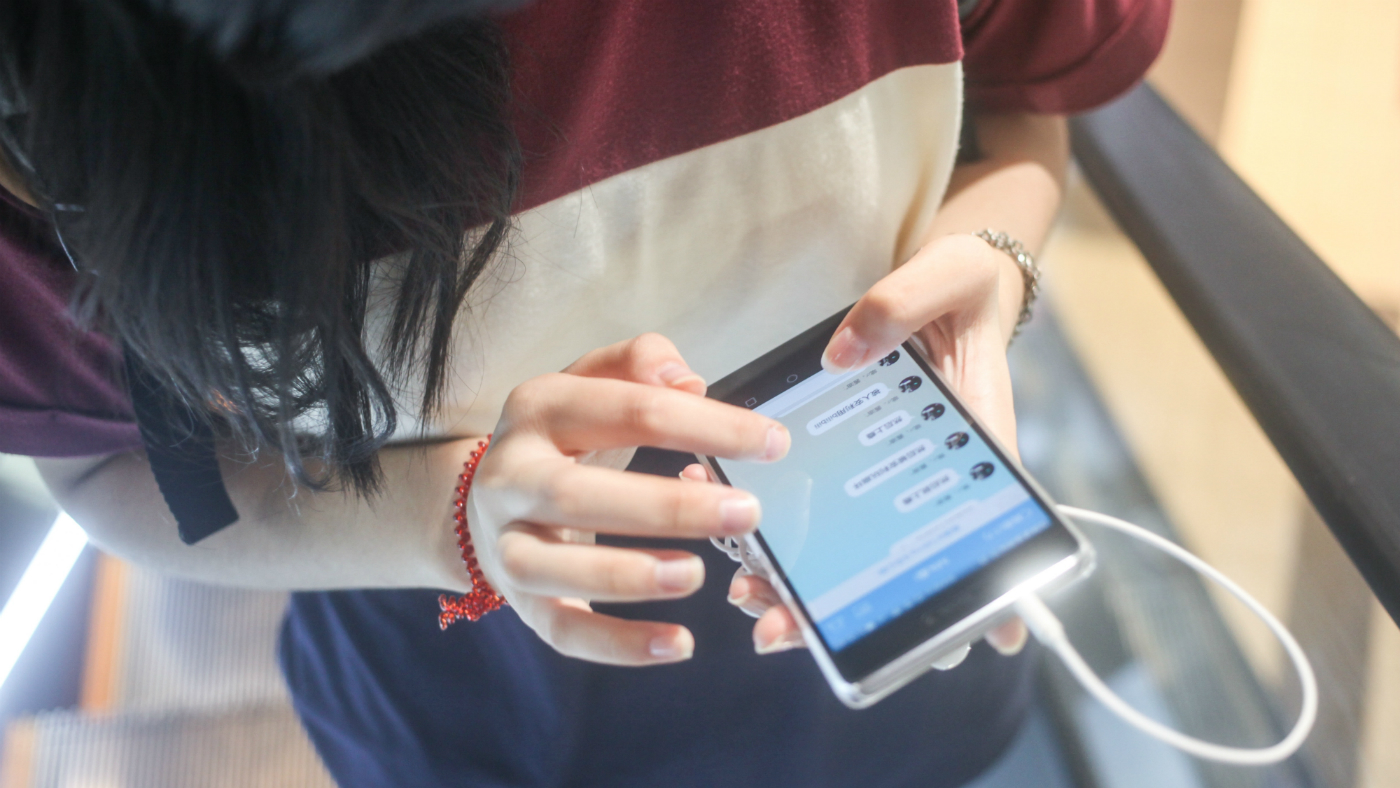How to clean your phone and keep it coronavirus-free
Apple updates its advice to include using alcohol wipes on iPhones

A free daily email with the biggest news stories of the day – and the best features from TheWeek.com
You are now subscribed
Your newsletter sign-up was successful
As people across the globe become more and more vigilant about the spread of coronavirus, many are going to great lengths to keep themselves disease-free, including wearing masks at all times and frequently using hand sanitiser.
But some members of the public are now worried that one highly ubiquitous piece of personal technology may be undermining our efforts: our smartphones.
Multiple studies in recent years have shown that smartphones often carry a remarkable number of germs. A University of Arizona paper in 2012 found that phones can often be covered in more bacteria than a toilet bowl – and sometimes up to ten times as much.
The Week
Escape your echo chamber. Get the facts behind the news, plus analysis from multiple perspectives.

Sign up for The Week's Free Newsletters
From our morning news briefing to a weekly Good News Newsletter, get the best of The Week delivered directly to your inbox.
From our morning news briefing to a weekly Good News Newsletter, get the best of The Week delivered directly to your inbox.
Our phones carry bacteria from virtually everything we touch, with many even having fecal matter on them. Yahoo Finance says a smartphone is “more or less, a rectangular petri dish”.
With the spread of coronavirus making people much more aware of health and hygiene issues, our attention if focused on our phones even more than usual.
How dirty are our phones?
Research on exactly how many germs are crawling on the average mobile phone has given a variety of results.
A free daily email with the biggest news stories of the day – and the best features from TheWeek.com
A 2017 study found more than 17,000 bacterial gene copies on the phones of secondary school students, while Reader’s Digest reports that every square inch of your phone has around 25,000 germs – compared to just 1,200 for a regularly cleaned toilet seat.
While doorknobs, light switches and the like all get wiped down – as well as toilet bowls – you may not think to give your smartphone a thorough cleaning.
But as CIO notes, this is the device you “handle constantly and often press to the side of your face, specifically your ear, nose and mouth, which means that any bacteria, virus or other germs that make its way onto your phone or case could easily transfer to your skin”.
Time magazine says that human skin is “naturally covered in microbes that don’t usually have any negative health consequences, and that natural bacteria, plus the oils on your hands, get passed on to your phone every time you check a text or send an email”.
–––––––––––––––––––––––––––––––For a round-up of the most important stories from around the world - and a concise, refreshing and balanced take on the week’s news agenda - try The Week magazine. Start your trial subscription today –––––––––––––––––––––––––––––––
However, Emma Hayhurst, a microbiologist at the University of South Wales, told The Wall Street Journal this week that panic over phone hygiene relating to coronavirus is unnecessary. While cleaning your phone is a good idea, coronavirus should not prompt people to obsess over keeping their phones germ-free.
She says experts are “trying to avoid mass panic about mucky phones”, adding: “When you are healthy, it’s really not a problem. We don’t need to be obsessively washing our phones right now.”
However, she adds: “If people are coming into contact with coronavirus patients, then, yes. Wash your phone all the time. Not because there is evidence that it will transmit via a phone but because there is no evidence that it won’t.”
How do we clean them?
The upshot of all this is that, while panicking over coronavirus is not necessary, cleaning your smartphone is still an important habit that we should try to develop.
Yahoo Finance recommends gently wiping your device, so “don’t scrub at it like you’re trying to get baked on lasagne off of a casserole dish” and “don’t submerge your device in any disinfecting cleaner”.
CNN recommends a soft, lint-free cloth because “abrasive ones like paper towels and washcloths can cause damage to your phone’s screen”.
However, you should avoid using bleach or aerosol sprays because they could stop your phone from working.
And coronavirus has prompted some major brands to change their guidance on cleaning phones.
In the past, Apple has discouraged users from cleaning an iPhone with alcohol or disinfectant wipes, but has updated its thinking in the light of coronavirus, and now states: “Using a 70% isopropyl alcohol wipe or Clorox Disinfecting Wipes, you may gently wipe the hard, nonporous surfaces of your Apple product, such as the display, keyboard, or other exterior surfaces.”